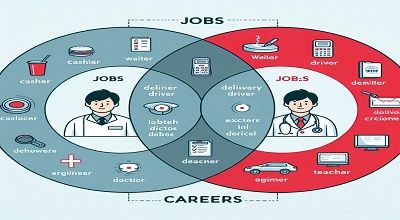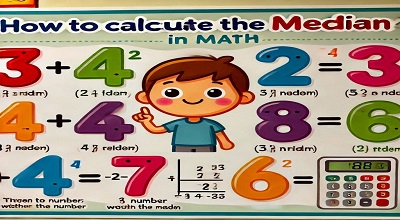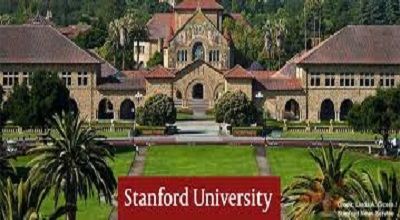Understanding the Difference and Real-Life Applications
Jobs vs. Careers: When navigating the world of work, many people often use the terms “job” and “career” interchangeably. However, they represent two distinct concepts, each with its own implications, challenges, and rewards. This article delves into the difference between a job and a career, providing detailed examples and practical insights to help you better understand these concepts.
Introduction
In today’s competitive and ever-evolving professional landscape, the distinction between “Jobs vs. Careers ” is more important than ever. Both have their own advantages and disadvantages and understanding their key differences can help individuals make informed decisions about their future in the workforce. This blog post will break down these terms, offer real-world examples, and answer common questions to help you better understand the practical implications of choosing between a job and a career.
The Basic Definitions
What is a Job?
A job is typically a role or position someone performs for monetary compensation, often involving specific tasks, responsibilities, and duties. Jobs are generally short-term, with no long-term commitment expected from either the employer or employee. In most cases, jobs are seen as the immediate means of earning a living and may not require specialized training or offer significant growth opportunities.
What is a Career?
A career, on the other hand, is a long-term pursuit of a professional path in a chosen field. It often involves continuous learning, personal and professional growth, and the building of a reputation over time. Careers are typically made up of a series of jobs, each contributing to overall progress and skill development in the chosen field.
Key Differences Between Jobs and Careers
The primary difference between a job and a career lies in their long-term goals and overall purpose. Here’s a deeper look at the key distinctions:
| Aspect | Job | Career |
|---|---|---|
| Focus | Immediate financial gain | Long-term growth and development |
| Duration | Short-term | Long-term |
| Learning & Growth | Limited or none | Continuous development and education |
| Commitment | Low commitment | High commitment |
| Flexibility | Flexible hours and tasks | Structured and goal-oriented |
Real-Life Examples of Jobs vs. Careers
Example of a Job: Retail Assistant
A retail assistant working at a local store is typically hired to perform tasks such as assisting customers, stocking shelves, and processing sales. This role is typically entry-level, and the worker may move on to other similar positions in the future. While the retail assistant can learn valuable skills such as customer service and sales techniques, the position is usually not seen as a stepping stone to a long-term professional career.
Example of a Career: Software Developer
In contrast, a software developer who works in the tech industry may begin with an entry-level position but quickly progresses to more senior roles. Over time, this professional may specialize in certain programming languages, work on high-profile projects, and eventually take on leadership or consulting roles. The software developer’s career is focused on long-term growth, skills acquisition, and building a professional reputation in the industry.
The Importance of Understanding the Difference
Knowing the difference between a job and a career can be crucial in making life decisions. Many people get stuck in jobs that may not fulfill their long-term aspirations or align with their personal interests and values. On the other hand, those who approach their work as part of a larger career path can focus on growth, skill development, and planning for a fulfilling professional journey. Here’s why it’s important to recognize the distinction:
- Personal Satisfaction
People who treat their work as part of a career often experience more satisfaction due to the long-term goals and sense of purpose they develop. - Financial Planning
Understanding whether you’re in a job or a career helps with financial planning, as jobs may offer less financial stability than career paths. - Skill Development
Careers offer more opportunities for continuous learning, whereas jobs may not encourage personal or professional development beyond the immediate tasks. - Work-Life Balance
Jobs often have more flexibility, but careers may involve more structured hours or expectations, though they can offer greater rewards in the long run.
Transitioning from a Job to a Career
For those currently in a job but hoping to transition to a career, there are several key strategies to follow:
- Assess Your Interests
Begin by identifying what you enjoy most in your job and what aligns with your long-term goals. Take time to explore fields or roles that resonate with your passions. - Invest in Education
Whether it’s formal schooling, certification programs, or self-learning, gaining relevant qualifications can help you shift from a job to a career in a new industry. - Networking and Mentorship
Connect with professionals who have established careers in your desired field. Mentors can provide valuable guidance and insights as you navigate your career transition. - Set Long-Term Goals
Establish a clear career path with specific short-term and long-term goals. Track your progress and make adjustments as necessary.
The Pros and Cons of Jobs vs. Careers
Pros of Having a Job:
- Flexibility: Jobs often offer flexible hours and work arrangements, allowing for personal freedom.
- Low Commitment: There’s often less pressure or long-term commitment involved.
- Quick Financial Return: Jobs typically pay regularly, offering a steady income.
Cons of Having a Job:
- Limited Growth: Jobs usually offer few opportunities for advancement or professional growth.
- Lack of Purpose: The work may not align with personal passions or long-term goals.
- Insecurity: Jobs, particularly low-skill ones, may be subject to layoffs or economic fluctuations.
Pros of Having a Career:
- Skill Development: Careers provide long-term opportunities for learning and growth.
- Job Satisfaction: A well-chosen career path can lead to a deep sense of fulfillment.
- Professional Network: Careers allow individuals to build strong networks and gain industry recognition.
Cons of Having a Career:
- Time Commitment: Building a career often requires a significant investment of time and energy.
- Work-Life Balance: Careers may demand long hours or relocation, which can affect personal life.
- Financial Uncertainty: It may take time to build a successful career, and initial positions may not be financially rewarding.
How to Choose Between Jobs vs. Careers?
Evaluating Your Priorities
When deciding whether to pursue a job or career, it’s essential to assess what matters most to you. Consider the following:
- Financial Stability: If immediate income is your primary concern, a job might be your best option.
- Work Satisfaction: If personal fulfillment and growth are important, a career path may be more suitable.
- Lifestyle Goals: Think about the level of commitment you’re willing to make and how much flexibility you need.
Long-Term vs. Short-Term Considerations
Your career aspirations might evolve over time. Some people begin with a job and later decide to transition into a career once they have gained the necessary skills and experience. Others may start a career in a specific industry and later switch to a different field based on changing interests or personal circumstances.
Frequently Asked Questions (FAQs)
1. Can a job lead to a career?
Yes, many people start with a job and gradually transition to a career. Through experience, networking, and skill development, a job can evolve into a stepping stone for long-term professional growth.
2. Is it better to have a job or a career?
It depends on your personal goals. If you’re looking for stability and immediate income, a job might be ideal. However, if you’re focused on growth, fulfillment, and long-term development, a career could be the better choice.
3. What are some examples of careers that require long-term commitment?
Examples of careers that require long-term commitment include medicine, law, engineering, and academia. These professions often require years of education, training, and experience before reaching the highest levels.
4. Can I change careers after working in a job for many years?
Absolutely. Many individuals transition to new careers later in life. With dedication, upskilling, and networking, it’s possible to make a successful career change.
5. How do I know when it’s time to shift from Jobs vs. Careers?
Signs include a lack of satisfaction in your job, desire for growth, and a clear interest in developing a long-term professional path. If you want to feel fulfilled and challenged in the long run, it might be time to pursue a career.
6. What skills are important in building a career?
Key skills include problem-solving, communication, leadership, time management, and specialized technical skills related to your field. Building a career often requires continuous learning and adaptability.
Conclusion
The choice between a Jobs vs. Careers is a personal one, shaped by your goals, values, and aspirations. By understanding the key differences between the two and considering your long-term objectives, you can make a more informed decision about your professional future. Whether you’re just starting out or seeking a career transition, always focus on continuous learning, skill development, and finding a path that aligns with your passions.





